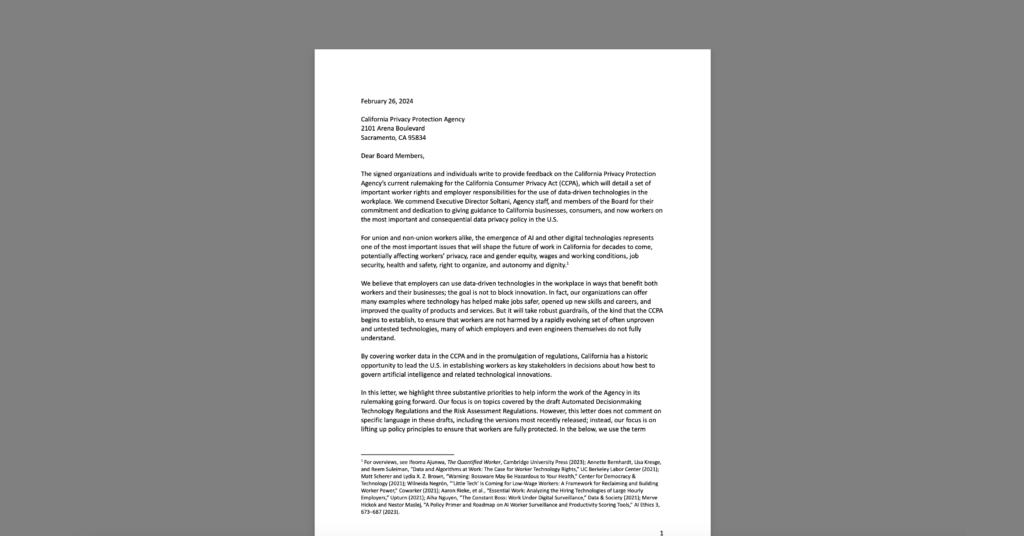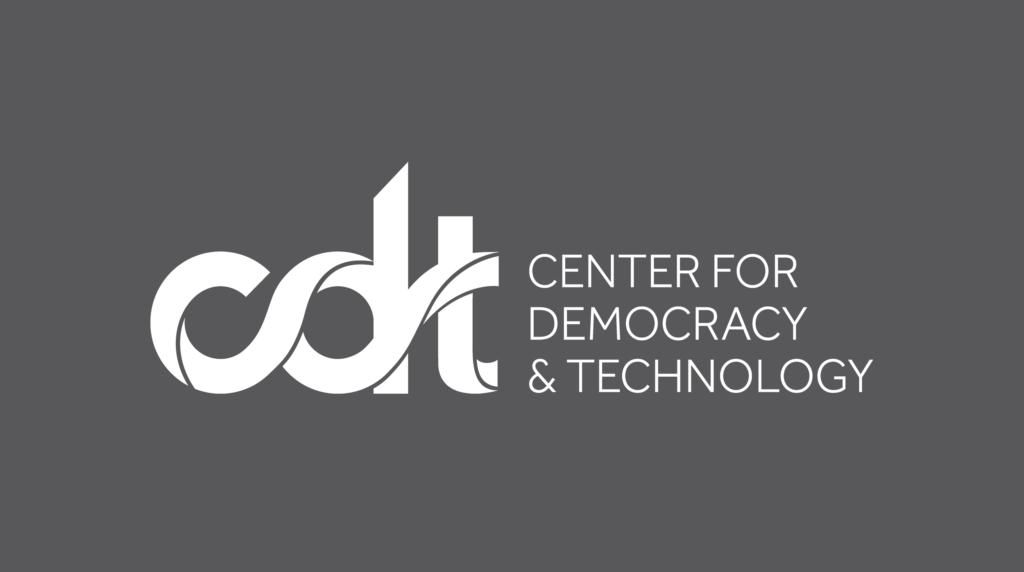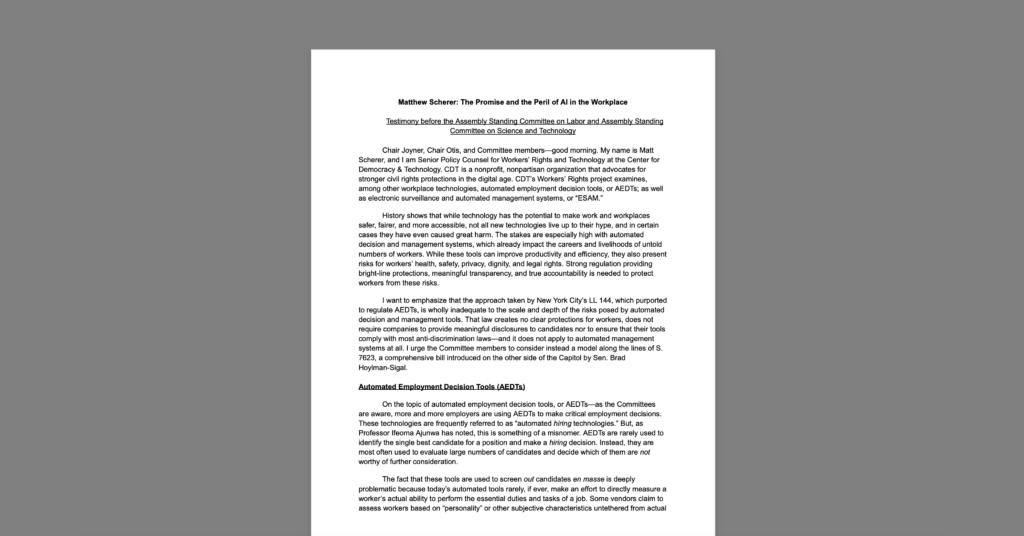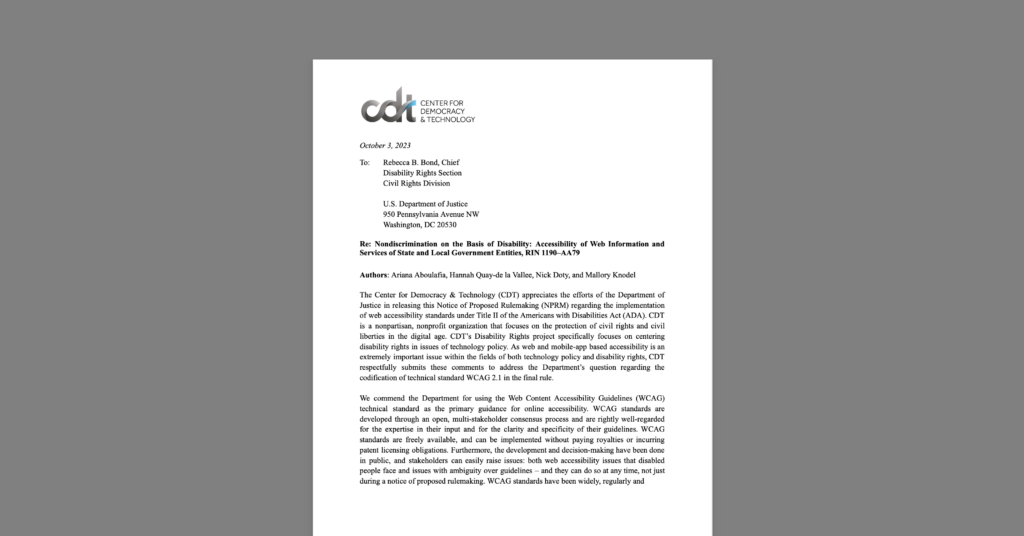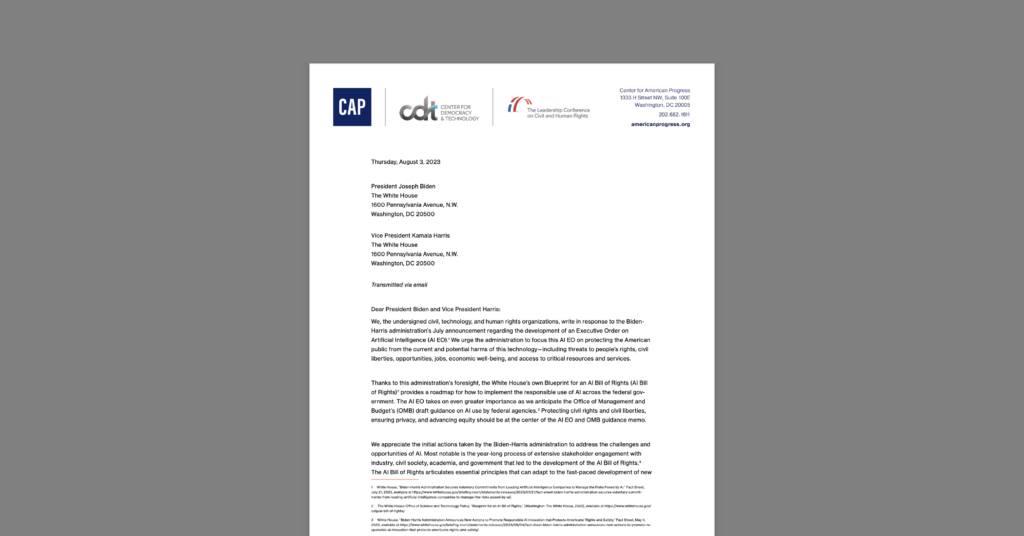
Disability Rights in Technology Policy
As technology becomes increasingly integrated into everyday life, concerns surrounding personal and data privacy, security, and discrimination become more widespread. However, the impacts of various technologies (including artificial intelligence) on people with disabilities are often ignored.
CDT’s Project on Disability Rights in Technology Policy seeks to address this gap. We analyze technology and tech policies – like the use of algorithms in employment and benefits determinations, surveillance technologies, and more – and report on how they impact disabled people.
We consider these impacts in fields as far-ranging as workers’ rights, health privacy, criminal justice, voter rights, and education. The project assesses risks, analyzes gaps in existing legal and policy protections, and seeks to center the perspectives of people with disabilities in efforts to advocate for fairness, transparency, accountability, and justice.
CDT advocates for careful and thoughtful regulation of technologies and policies that disproportionately affect disabled people, especially those who are multiply marginalized. Our work is guided by our partner organizations in the disability community as well as CDT’s Advisory Council on Disability Rights in Technology Policy, which includes leading experts in disability and tech, many of whom are disabled themselves.
The project works to build and share expertise among policymakers, researchers, advocates, and disabled community members. We aim to develop actionable guidance for companies, regulators, legislators, and advocates to remedy the harms that we identify. Above all else, we consistently prioritize disability in technology policy and illuminate the impacts – both positive and negative – of technology on disabled people.
